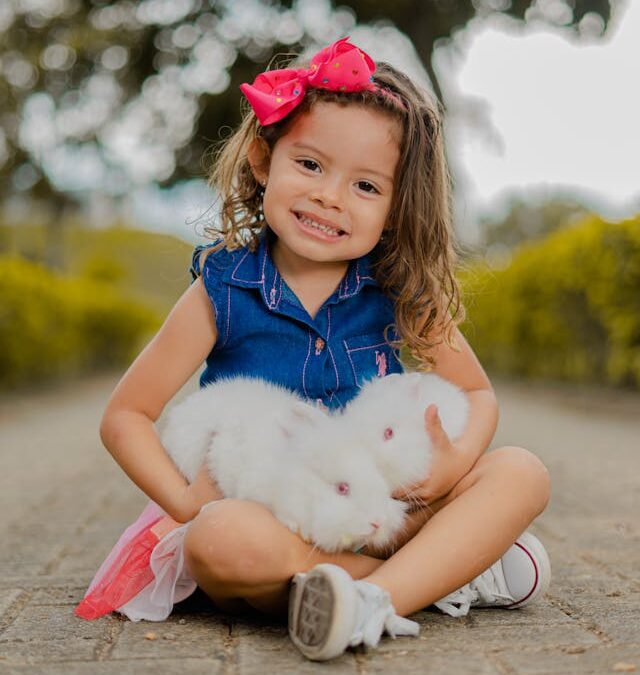What do you know about adopting a rabbit? Chances are these quiet and loving animals have flown under your radar when it comes to choosing the perfect family pet. Read on to learn why they deserve a look.
Gentle and affectionate
These little creatures are very gentle, and domesticated rabbits love receiving pets and attention from their human family. Although they may be shy when you first meet them, they typically enjoy being around people and will become comfortable with their owners if given enough patience. In time, you’ll likely find your bunny giving you a small nudge to indicate they want a treat or some affection. As one of the most affectionate pets, they can sit for hours as you massage their coat and scratch behind their ears.
The only time you might see your rabbit showing any aggression is if they feel cornered or something scares them. Most rabbits also hate being picked up or held. Additionally, if your animal hasn’t yet been neutered or spayed, they might become protective of their space and demonstrate some territorial behavior.
Longevity
One of the great things about owning a pet bunny is that they’ll be with you for a long time. Unlike with many other small domesticated mammals, your relationship can last upwards of 10 years. In this respect, their longevity rivals that of many large dog breeds. While the length of time a rabbit can live is partially dependent on its breed and whether it’s kept indoors or in an outdoor hutch, they have a decent life expectancy.
People typically invest a lot of time and energy bonding with an animal and feel heartbroken when a pet dies. By adopting a rabbit and giving it the care it requires, you can take comfort in the possibility of enjoying its company for many years to come.
Quiet but personable
Rabbits are generally so quiet that you can almost forget they’re around. This is a perk if you don’t want to disturb the neighbors or be woken up late at night when they may be active. During one-on-one time with your bunny, you may hear them quietly purring or grinding their teeth, both signs of contentment.
However, they will thump their hind legs if they’re afraid or upset, making quite a racket. A single loud thump means that you’ve done something to upset them, while continuous thumping is an attempt to alert you of perceived danger. In the latter case, it could be hearing a vacuum cleaner or construction sounds.
If you’ve ever known a rabbit adopted as a house pet, you’ll likely have noticed how much personality they can have. They can behave in interesting and unexpected ways, docile one moment and running around the room in a burst of energy in the next.
Trainable
Another thing to know about these little animals is that they are highly trainable. Not only can you train rabbits to use a litterbox, but you can teach them tricks. Imagine showing your rabbit how to give kisses, spin in a circle, or greet you with a high five. Similar to dogs, these creatures can also master an agility course and learn to come to you when called.
Additionally, domesticated bunnies are smart enough to understand the household routine. For instance, once dinner time rolls around, you may find them waiting by the fridge for some tasty vegetables. Of course, this may be a case of your rabbit training you, rather than the reverse.
Care Considerations
As with any pet, it’s important to understand your rabbit’s needs and follow through with proper care to give them the best life possible. While you can keep them in a pen and don’t need to take them out of the house to bathroom, rabbits do require daily exercise and a sizable enclosure with a solid floor.
You must handle them gently to prevent injury to their small bodies. Ensure, too, that they have a quiet environment, avoiding any loud noises or fast movements. With this in mind, any children in the household should be supervised when handling the rabbit.
Rabbits thrive on lots of attention, so give them at least an hour or more out of their enclosure every day to interact with family members, play, and exercise. Take into account that they are crepuscular by nature, which means that will be more active at dawn and dusk. Their diet should consist largely of grass-based hay with a regular supply of fresh, high-fiber green vegetables, and daily cage cleaning is critical.
In closing
There can be downsides to having a rabbit, such as their tendency to chew things when out of their cage, the fact that they shed a lot, and veterinary costs can be high. The species isn’t for everyone. Even so, there are many upsides to consider bringing one of these little bundles of fluff home.

